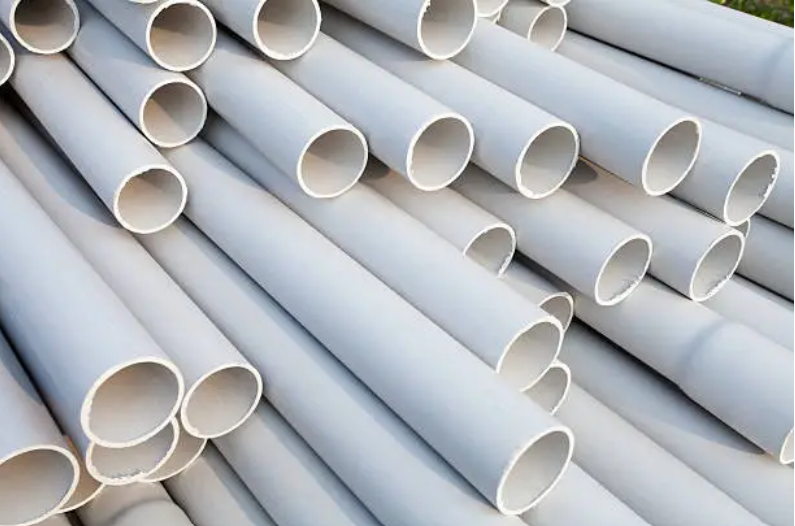PVC Plastics: Advantages and Uses
PVC is one of the most popular polymers used in various applications. From applications around the house to industrial applications, PVC is used due to its sturdiness and resistance to chemicals and moisture.
About 40 million tons of PVC are produced each year for various applications. This is a lot of PVC plastics. So, can PVC plastic be recycled? This question is crucial if you’re taking sustainable steps for the environment. Read on to learn more about where PVC plastic is used and its benefits.
What Is PVC Plastic?
PVC, or polyvinyl chloride, is a synthetic polymer of plastic. It is the world’s third-largest form of plastic produced and is versatile in its applications. This engineering plastic type is mainly available in rigid and flexible types in grey, white and clear colour options.
The primary forms in which PVC is sold are:
Rods
Sheets
Tubes
Components
In addition to these industry standards, customised materials are available when purchased in large quantities to design products or parts by many industries to reduce wastage.
Can PVC Plastic Be Recycled?
Yes, PVC plastic can be recycled. However, the recycling process for PVC is more complex than for other plastics, and there are some challenges associated with recycling PVC. One of the main challenges is that PVC is often mixed with other materials, such as plasticisers and stabilisers, which can make it difficult to separate and recycle the different components.
To overcome these challenges, different recycling methods can be used for PVC. For one, mechanical recycling grinds up the PVC into small particles, separating out any contaminants, and then melting and reforming the plastic into new products. Another method is chemical recycling, which involves breaking down the PVC into its chemical components and then using those components to make new materials.
It’s worth noting that not all recycling facilities accept PVC for recycling, so it’s important to check with your local recycling program to see if they accept PVC plastic. Additionally, some types of PVC may not be recyclable, such as PVC that has been contaminated with hazardous materials.
What Are the Main Advantages of Using PVC Plastic?
The main benefits of PVC include:
Structural integrity
The PVC polymer is very sturdy and offers excellent structural integrity. It can form a sustainable framework for products that are needed for regular usage for years. This property allows it to be useful in many factories and commercial spaces.
Compatible with welding and shaping
PVC is very versatile as it can be bent to give any shape you desire. It can be welded to join two pieces, making the material easy to work with. These shaping processes increase the number of applications of this polymer in many areas.
Resistance to chemicals and moisture
PVCs are a form of engineering plastics that are resistant to many forms of chemicals. This characteristic allows it to find many installations in the chemical industry and as storage units for various chemicals. The polymer is also resistant to moisture, which makes it suitable for designing pipes and other parts in the plumbing space.
Insulating property and service temperature
PVC is an excellent insulator and useful for application near the electrical systems in buildings. It has a large service temperature of up to 50 degrees Celsius. As a result, PVC is widely used in installations due to its high durability.
Impact resistance
PVC is resistant to impact to a considerable extent. It is strong enough to withstand substantial impact and pressure. Hence, it is one of the most valuable types of engineering plastics.
Where Can You Use PVC Plastic?
PVC is incredibly versatile and durable, which makes it an excellent option for most industrial applications of engineering plastics. Here are the most common applications of PVC:
Pipes and Machine parts
PVC pipes are used in most households as they are affordable and durable. The material is also used for the manufacture of various machine parts. PVC’s extensive service temperature and chemical resistance make it compatible with the automobile industry.
Chemical storage and insulators
PVC is a material used in manufacturing chemical containers due to its complete resistance to chemical interaction over extended periods. Additionally, its insulating properties make it a commonly used material for insulation purposes in various settings.
Tanks, ducting and tank fittings
PVC is mainly used for manufacturing tanks and their fittings. All needed accessories are also manufactured using this polymer due to its ease of availability and beneficial properties. PVC is also heavily used in ducting as it is durable and easy to work with.
McNeall Plastics: Helping Businesses Through Plastic Engineering and Manufacturing
McNeall Plastics offers good quality PVC which can be designed to suit all your needs. We assist you in your journey of finding the right products and pay great care towards your experience. We are an experienced team and are entirely Aussie-made. Our experience of being in the field for 50 years provides valuable insight into any queries you may have.

